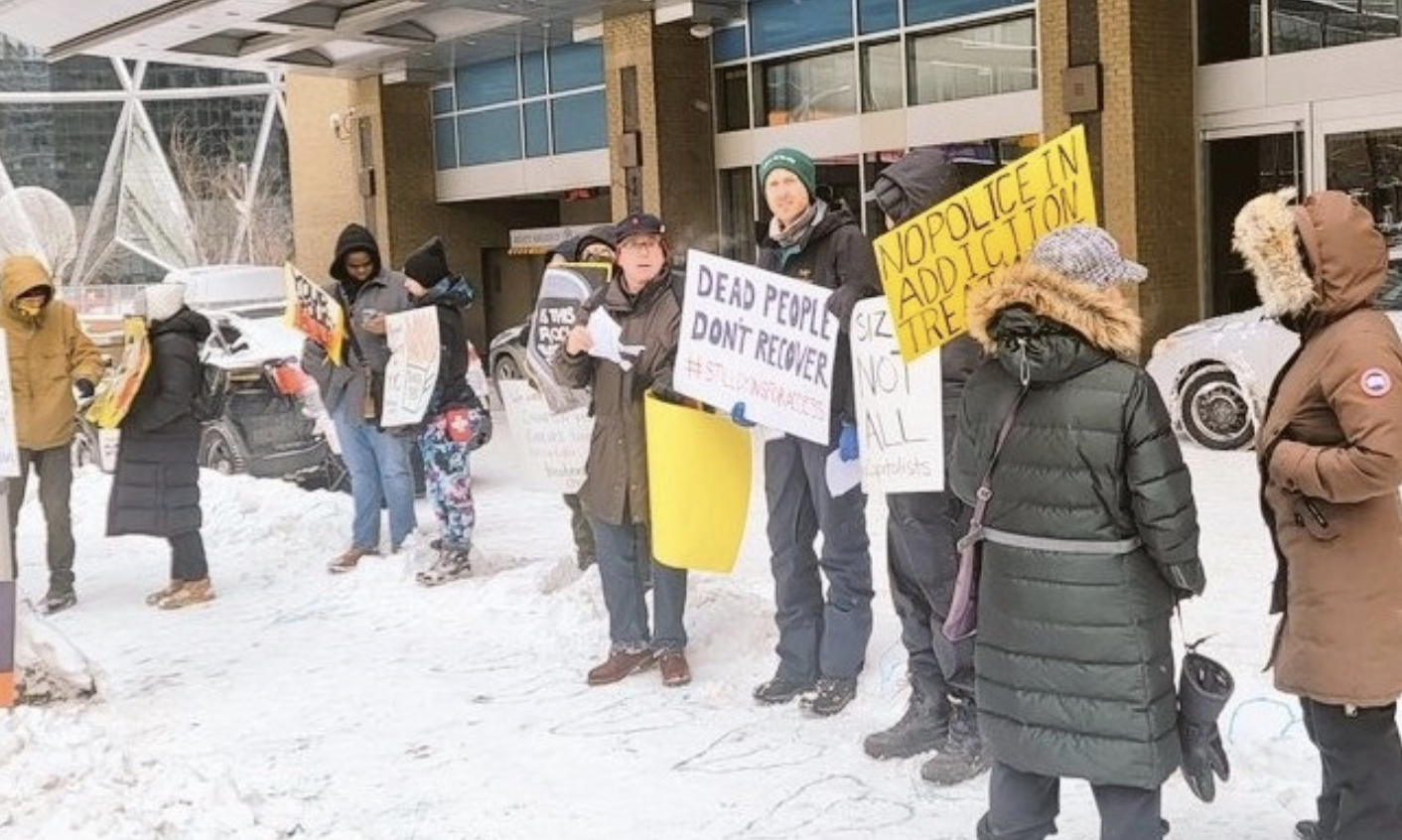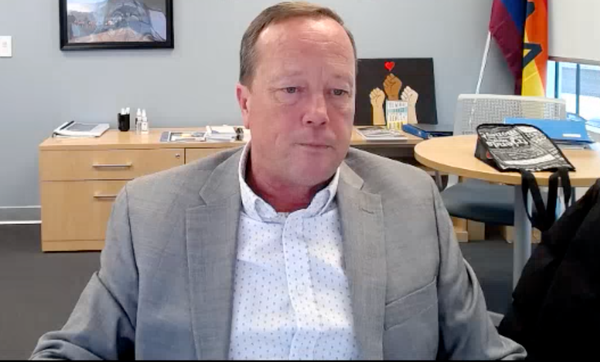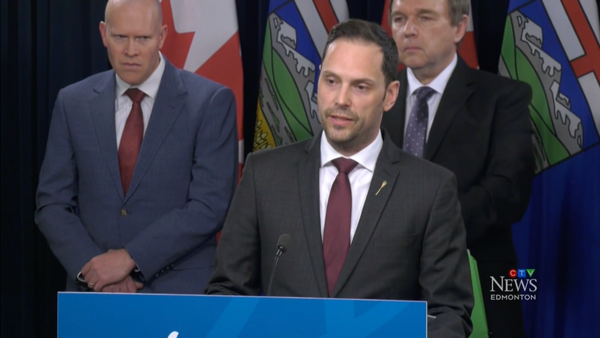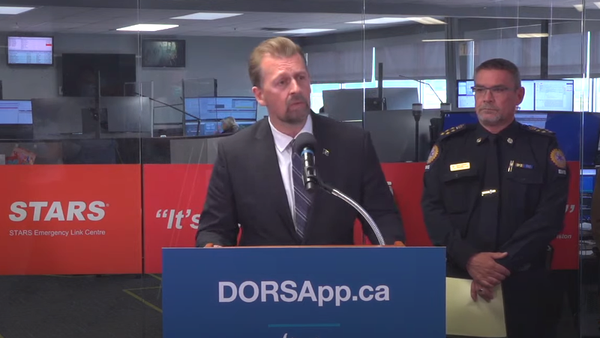Have you been virtually frisked by Calgary Police?
Have you organized or attended a protest? Have you been asking questions about "police business"? It might be time to conduct a Criminalization Health Check.

Jeremy Appel is reporting that Calgary Police Service staff ran two database searches of my name in their S.E.N.T.R.Y. database.
The first search, on February, was conducted by an unnamed civilian staff in the Major Events and Emergency Management division hours after I published “Why are we protesting the Alberta Recovery Conference?”
Alberta Recovery Conference was attended by police chiefs, UCP MLAs and staffers and addiction industry insiders. It was held on February 21 and a small group of us huddled outside in -30C weather to express our discomfort at the way Alberta’s pseudoscientific recovery-oriented system of care is weaponized to exclude people who use drugs from services and supports.
The second SENTRY database search by Calgary Police staff, on February 28, was unrelated to the protest announcement. I was inquiring about a violent police incident I witnessed and filmed last summer. Perhaps I’ll tell that story before long.
According to Calgary Police, SENTRY reveals the “Local records of the Applicant's involvement with Calgary Police Service.” This means criminal records but also arrests, outstanding warrants, “mental health occurrences” and other interactions a person may have had with Calgary Police.
Both instances of these searches are deeply troubling. In the February 13 instance, Calgary Police are assuming unjustified power to surveil anyone that plans a protest, on the basis of protecting public safety.
In other words, Calgary Police are criminalizing the expression of free speech.
If, during this database search, the police had discovered I had a conviction history, or I had even been in attendance at a criminalized protest such as the G20 Queen’s Park debacle in 2010, the Calgary Police protest plan would have been escalated to a higher severity. That means more surveillance, more police presence, and likely, a lower threshold for violent response.
It means the protesters would have been at significantly higher risk of experiencing police violence. Given that several of the Alberta Recovery Conference protesters had histories of criminalized drug use, an escalated Calgary Police response could easily have spelled disaster.
In the February 28 instance, conducted by a request intake coordinator after I submitted a separate FOI, Calgary Police are assuming unjustified power to surveil anyone that asks questions about Calgary Police activities using the Freedom of Information portal.
In other words, Calgary Police are criminalizing our freedom of information.
Stephen Harrison, a police watchdog in Victoria, has some experience with this too. Earlier this year, media reported that the Privacy Commissioner ruled in his favour that Victoria and Saanich Police had unjustifiably searched his name in their databases following his FOI submissions. Speaking to Jeremy Appel for the current story, Harrison said these searches are like “if you've been writing a letter to the editor criticizing health policies, a doctor can read that and decide to take a look at your medical records.”
Was I targeted in this because of my activism or police criticism? The more people replicate this work (see below!), the better we can answer this.
If I was not targeted, the reality is far worse: Calgary Police are telling us that anyone who protests anything, and anyone who submits questions about “police business,” can have their history weaponized against them.
I also want to emphasize a finding that Appel reported in his piece. I was originally warned away from requesting an email server search of my name by the Calgary Police Access to Information division because Calgary Police staff are instructed to delete emails that are deemed “transitory records.” Their definition of this appears to be anything not relevant to an ongoing investigation.
Calgary Police are deleting emails, rendering them un-searchable.
The FOIPP Act Section 3 designates that “This Act…e) does not prohibit the transfer, storage or destruction of a record, (i) in accordance with an enactment of Alberta or Canada, or (ii) in accordance with a bylaw, resolution or other legal instrument…”
What gives Calgary Police the authority to delete email records?
This needs verification by a legal expert or privacy commissioner, but if it holds up, journalists and all citizens in this city should be absolutely livid.
How to conduct your own Criminalization Health Check
Have you organized a protest? Have you submitted an FOI request? Do you have a history of police criticism?
If so, submitting a database search request is free. Here’s how you do it at Calgary Police Service. (Edmonton Police and the RCMP are a whole other story.)
- Visit the Calgary Police Access to Information site for instructions or get to work on the form directly.
- Fill out all relevant personal fields.
- Under About Your Request question 1, tick off the box that says “Your own personal information”.
- Fill out questions 2 and 3 to your own preference (I suggest “receive a copy of the record” and receive by email).
- For About the information you want to access question 1, write in that you are requesting an audit of who queried your name on the CPS Report Database (SENTRY),
- For question 2, specify a range of dates you want queried. I asked for January 1, 2020 to July 7, 2023.
- Sign and date and then submit your request to the lovely folks at access@calgarypolice.ca.
- The request should take no longer than one month. If it does, make some noise about it. If the Access to Information people call, keep your pen handy and take notes — this is how I learned that Calgary Police are deleting emails.
- Whatever comes back, you are welcome to send it my way for review if you are comfortable sharing.
- Share these instructions with friends and family who have expressed their freedom of speech or freedom of information!





